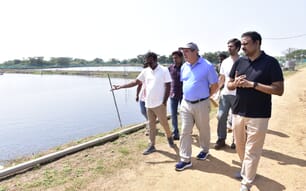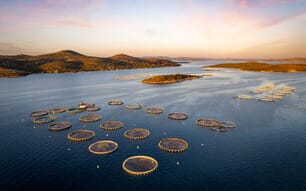Dikerogammarus villosus, dubbed the killer shrimp by biologists for its appetite for native species like shrimp, young fish and insect larvae, can alter the ecology of the habitats it invades.
It has been confirmed at Cardiff Bay and Eglwys Nunydd Reservoir in Port Talbot. The non-native species was found by Cardiff Harbour Authority as part of their Environmental Monitoring programme and later confirmed by Environment Agency Wales at Eglwys Nunydd.
Originally from the steppe region between the Black Sea and the Caspian Sea it is believed to have invaded Western Europe via the Danube / Rhine Canal. The only other confirmed sighting in the UK is at Grafham Water Reservoir in Cambridgeshire in September this year. It is not yet known how the species arrived in the waters of south Wales.
The Welsh Assembly Government has set up an all Wales group to address the situation, and includes Environment Agency Wales, the Countryside Council for Wales, Cardiff Harbour Authority and the owners of Eglwys Nunydd. The Group is working collaboratively to monitor and contain the species as much as possible.
The advice from the Group is that anyone who uses these waters must take steps to prevent the species from spreading. Simple things like cleaning and drying equipment thoroughly after use and checking equipment when leaving the water are vital.
Chris Mills, Director, Environment Agency Wales, said: “Despite the fearsome name, these are not a threat to people, but the damage they can cause to our environment here in Wales is a very real danger.
“Because of what they eat and the rate that they eat it, it can alter the food chain and our ecosystem by increasing the competition for food and the native species that rely on the insects could go elsewhere.
“We will continue with our monitoring work across Wales to identify any other water recreation spots where they could be to see how widespread the problem has become.”
Invasive Species Of Shrimp Found In Wales
WALES, UK - Environment Agency Wales has confirmed that an invasive species of predatory shrimp is inhabiting waters at various locations across south Wales.


